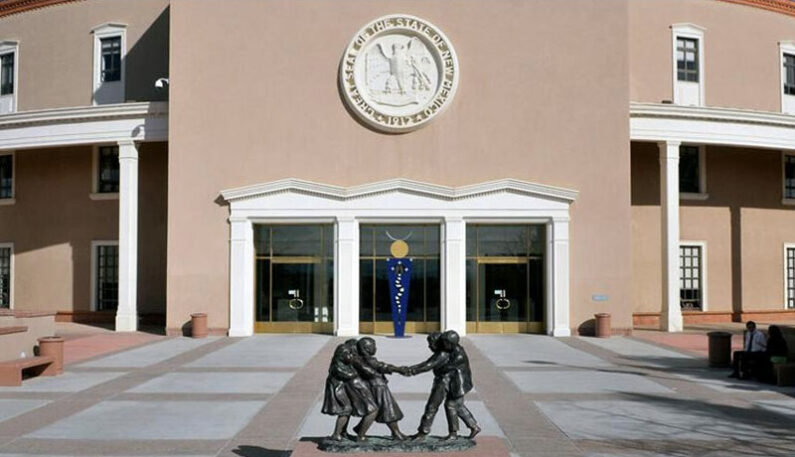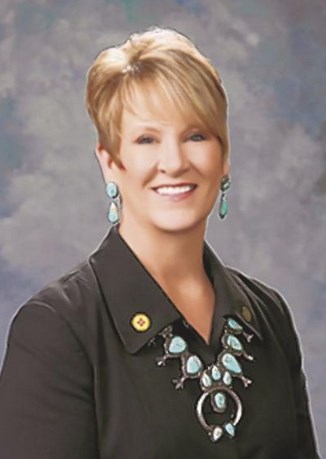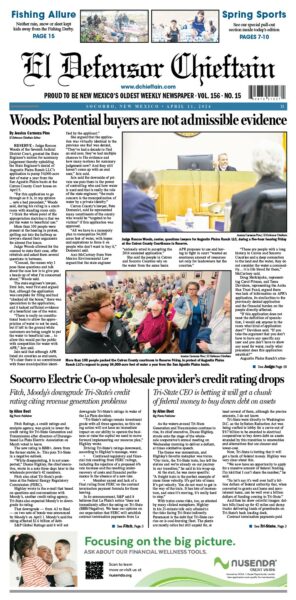
New Mexico State Capitol
Eddie Moore | Albuquerque Journal

Think New Mexico is supporting Senate Bill 66, sponsored by Senator Bill Soules (Las Cruces), Senator Katy Duhigg (Albuquerque), Representative Susan Herrera (D-Espanola), and Representative Gail Armstrong (R-Magdalena), and endorsed by Governor Lujan Grisham, to reduce the state’s maximum interest rate on small loans from 175 percent to 36 percent.

Rep. Gail Armstrong, co-sponsor of the bill.
Senate Bill passed the Senate 25-14, but unfortunately, in its final House committee, the bill was amended to increase the interest rate cap from 36 percent to 99 percent. We are now urging the House to restore the 36 percent cap.
When Think New Mexico released our report on ending predatory lending last fall, many New Mexicans were shocked to learn our state allows lenders to charge interest rates as high as 175 percent per year in our state – one of the highest rates allowed anywhere in the nation.
By bringing that cap down to 36 percent, Senate Bill 66 would restore a law that worked well for New Mexico for decades.
In the mid-1950s, the New Mexico legislature and governor capped the annual interest rates of loans at no more than 36 percent. This law protected consumers while still allowing plenty of access to credit. Unfortunately, in the late 1970s, the United States entered a period of double-digit inflation that raised interest rates above the limits set by many states’ usury laws, including New Mexico’s.
In response, in the early 1980s, the legislature and governor abolished interest rate caps on every kind of loan, and predatory lenders flooded into New Mexico. At last count, there were 561 storefront lenders in our state: one for every 3,819 New Mexicans. By contrast, there is a McDonalds for every 23,298 New Mexicans.
These predatory lenders, 85 percent of whom are based out of state, drain hundreds of millions of dollars out of our local economy and push struggling families into debt traps where they have to choose between keeping up with their loan payments and putting food on the table.
In 2006, the Department of Defense recognized that predatory lending was impacting national security because so many members of the military were getting trapped in high-interest loans. So Congress passed the Military Lending Act, capping the annual interest rates of loans to military service members and their families at 36 percent. This federal law already protects 17,741 active duty, national guard, and reserve members in New Mexico.
States began to pass similar laws. Every time one of these laws was passed, high-cost lenders argued that it would dry up access to credit and send borrowers into unregulated online loans.
Their arguments proved false.
- Study after study has shown that borrowers in states with 36 percent interest rate caps have maintained access to credit through a variety of more affordable options, including:
- Loans from credit unions (of which New Mexico has 41 with 142 locations) and Community Development Financial Institutions (of which New Mexico has 17);
- Employer-based loans from companies like TrueConnect, which already provides 16,000 New Mexicans with access to affordable credit;
- Responsible small lenders that can and do provide credit at 36 percent APR.
Supporters of Senate Bill 66 include numerous nonprofits as well as the cities of Albuquerque and Las Cruces, McKinley and Valencia county, the All-Pueblo Council of Governors, and the Navajo Nation, among others.
New Mexicans deserve access to fair credit at reasonable rates. Please visit Think New Mexico’s website (www.thinknewmexico.org) to contact your state senator and representative and urge them to support Senate Bill 66 and cap the annual interest rates of small loans at 36 percent.


















